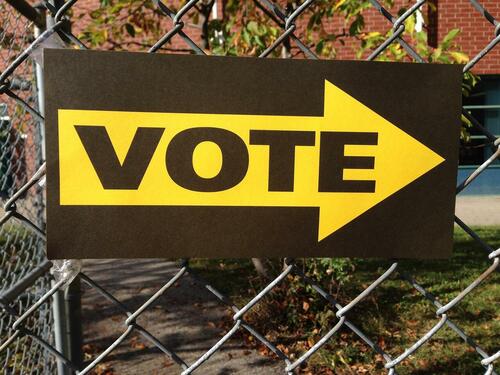If Politics Were Business, Regulators Would Bust It
Authored by Lura Forcum via RealClearPolitics,
In the marketplace, competition empowers consumers. The more options you have for a particular product, the lower prices become. Moreover, having more options means you are more likely to find exactly what you want instead of just settling for something good enough.
In politics, competition empowers voters. However, unlike the marketplace, where consumers are accustomed to a variety of options, politics offers only two. Worse still, the two options available are so feckless that a plurality of voters choose neither.
When there’s little competition, power ends up in the hands of companies, not consumers. And that’s what we see with the Republican and Democratic parties. The lack of competition allows both parties to continue to be unresponsive to voters’ concerns.
According to recurring surveys by Gallup, beginning around 2010, independents have been the electorate’s plurality, with few exceptions. And since Obama’s reelection in 2012, independents have been the plurality without exception.
Put differently, voters have reported feeling disempowered for more than a decade.
It’s no wonder why. The parties set it up so they don’t have outside competition. A number of rules make it difficult – or impossible – for non-party voices to be heard. For instance, in 10 states, you can’t vote in a party’s primary unless you’re a registered party member. Another nine states allow unaffiliated voters but not opposing party members to vote in party primaries. Only 15 states allow for open party primaries where any voter can participate.
If you’re running for office as an independent, you don’t have access to the resources that a major party offers its candidates for statewide or national office. It’s hard enough to win political office even with the support of the duopoly; independents are forced to do the impossible.
While the election results suggest that voters found the Trump campaign more responsive to their concerns this time, that doesn’t mean Republicans will become better listeners going forward. And why should they? Without competition, there is no incentive for either party to take voters’ concerns seriously for longer than an election cycle.
With the Republican party the party of Trump now, attention has focused on his public and private lives, his various legal cases, and his influence over the Republican Party writ large. These distractions have taken attention away from good policy and effective governance. And while you might expect when one party takes its eye off the ball, it would allow the other party to flourish, but that hasn’t been the case.
Democrats are flailing because the shift in the Republican party led them to believe that it was enough to just not be Republicans. Since the rise of Donald Trump, their offering to voters has increasingly been, “At least we’re not those guys.” On a variety of issues, from the environment to health care to national defense, one party’s position is, “We should do this,” and the other’s is, “No, we shouldn’t,” and the result is a gridlocked Congress.
The Independent Center does the exact opposite. We are bringing competition back to politics by identifying, activating, and empowering independent voters.
These voters insist on effective government. They are the swing voters who went for Trump in 2016, Biden in 2020, and Trump again in 2024 because they value results over political allegiances. They expect the government to be fiscally responsible, but they don’t like the more extreme positions on social policies favored by Republicans. In short, they want government to live within its means, as they do, and respect the decisions of consenting adults.
The Independent Center believes that the best way to make government more responsive to voters is to bring more people into the political process, especially the people who don’t identify as Republicans or Democrats. By creating a movement of independent voters, we will have more voices about what people want and need, more ideas about effective policy responses, and more feedback about what the best policy solutions are.
By competing with Democrats and Republicans for voters, independents will push those parties to understand voters’ values and preferences better, develop better policy proposals, and actually pass legislation instead of devoting their energies to name-calling and obstructing the other side.
Lura Forcum is the incoming president of the Independent Center. A former professor and researcher, she conveys complex ideas and policy insights to engage independent voters who now comprise the plurality of the electorate.
Tyler Durden
Tue, 11/26/2024 – 17:40
via ZeroHedge News https://ift.tt/9scYL26 Tyler Durden
